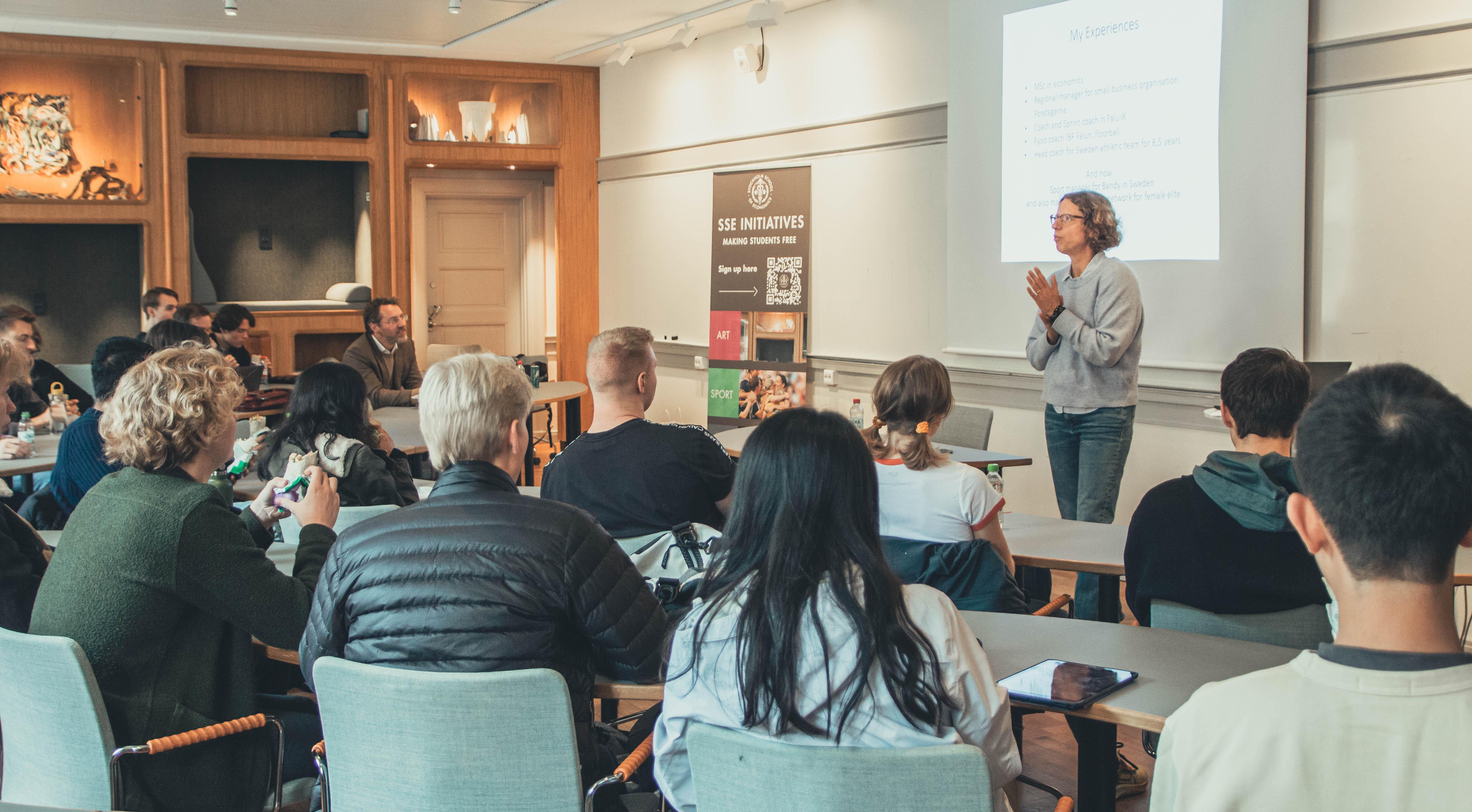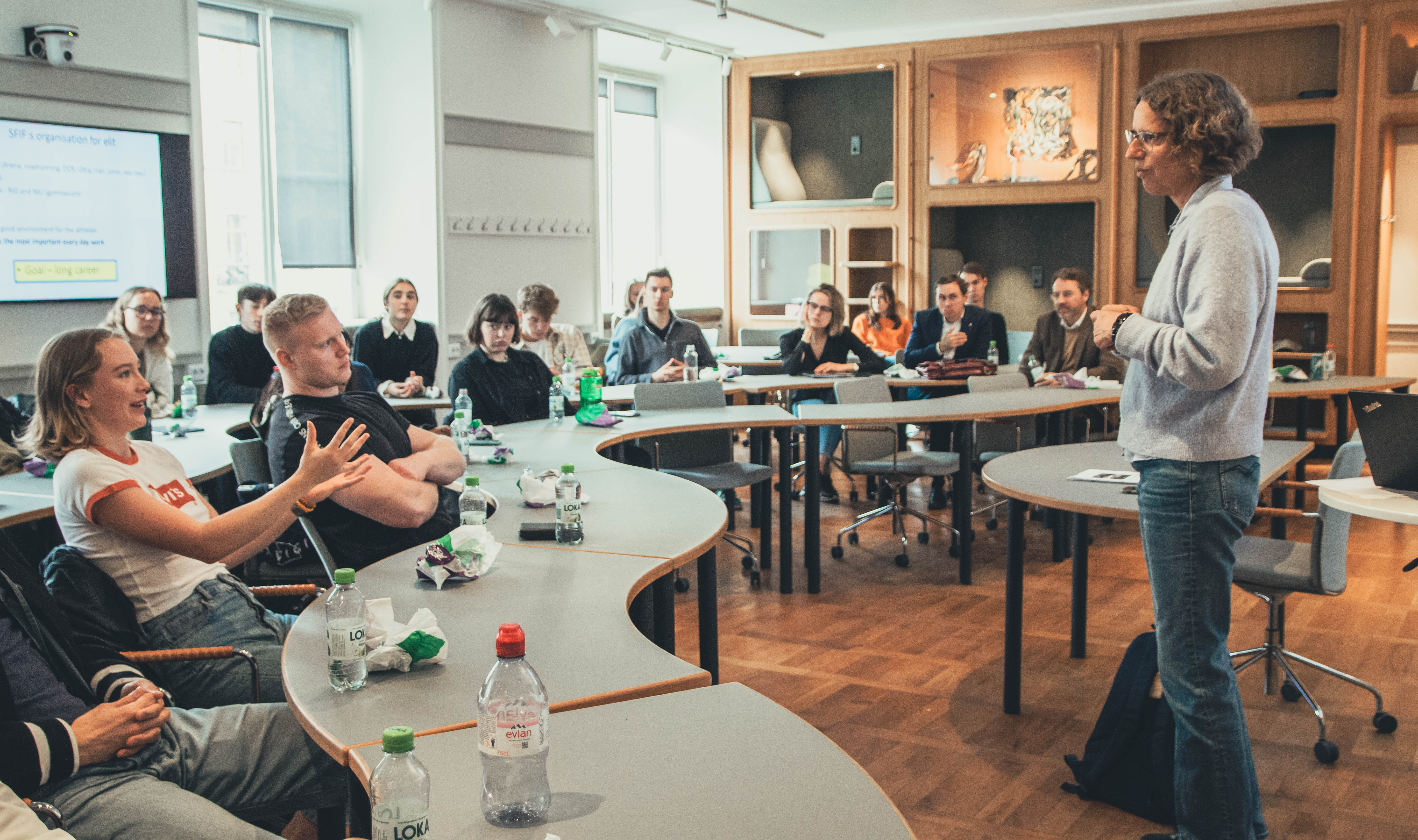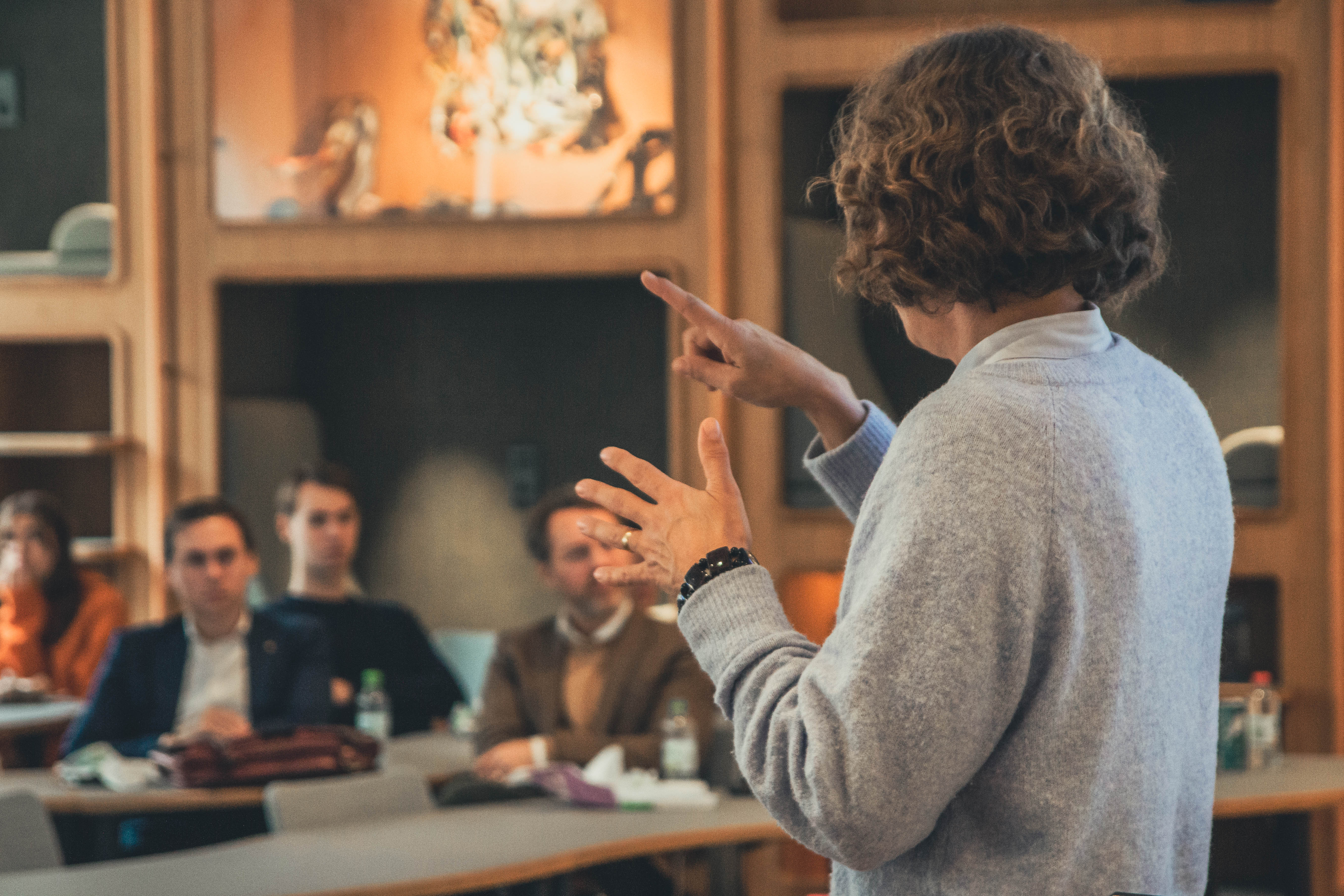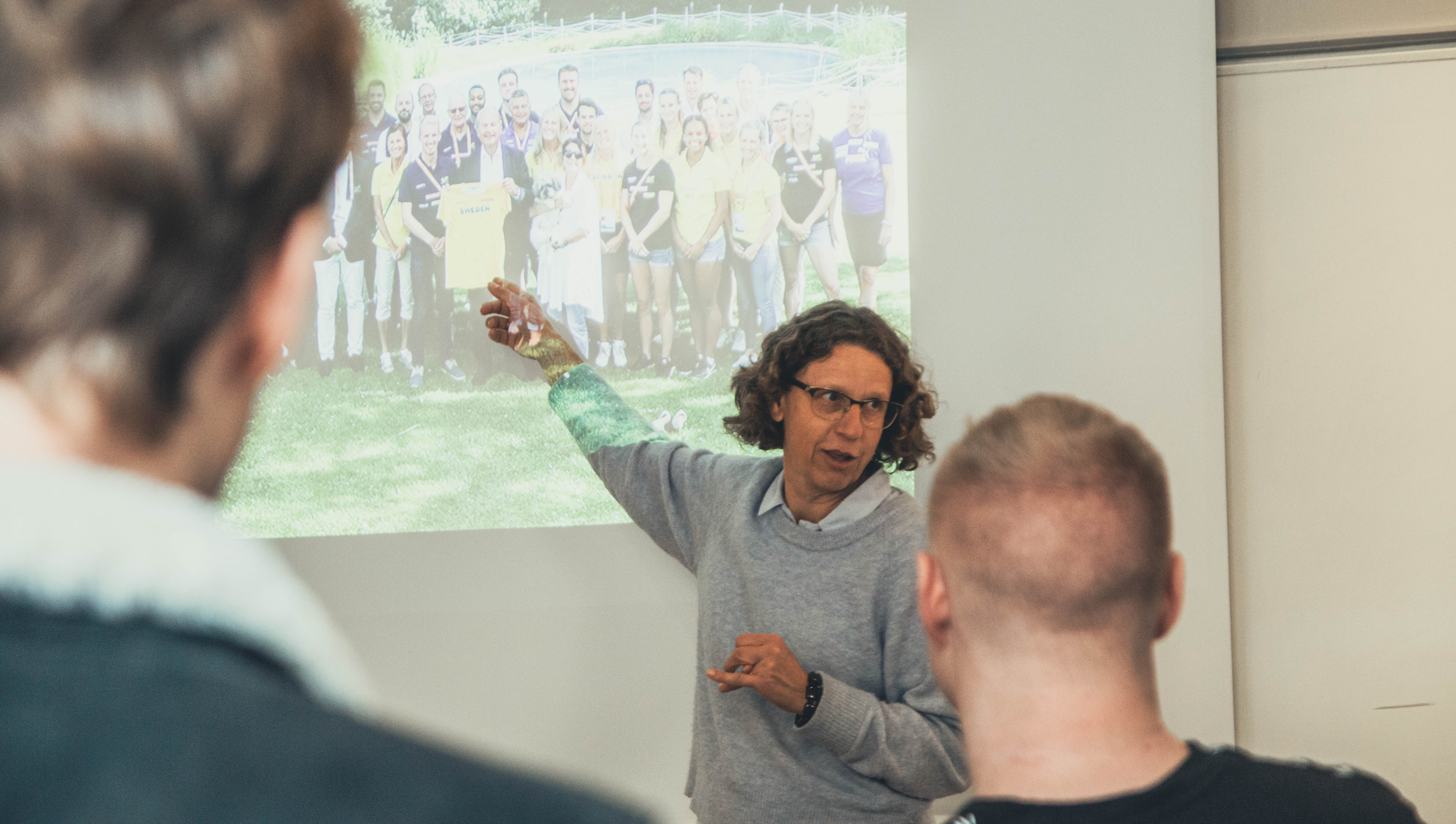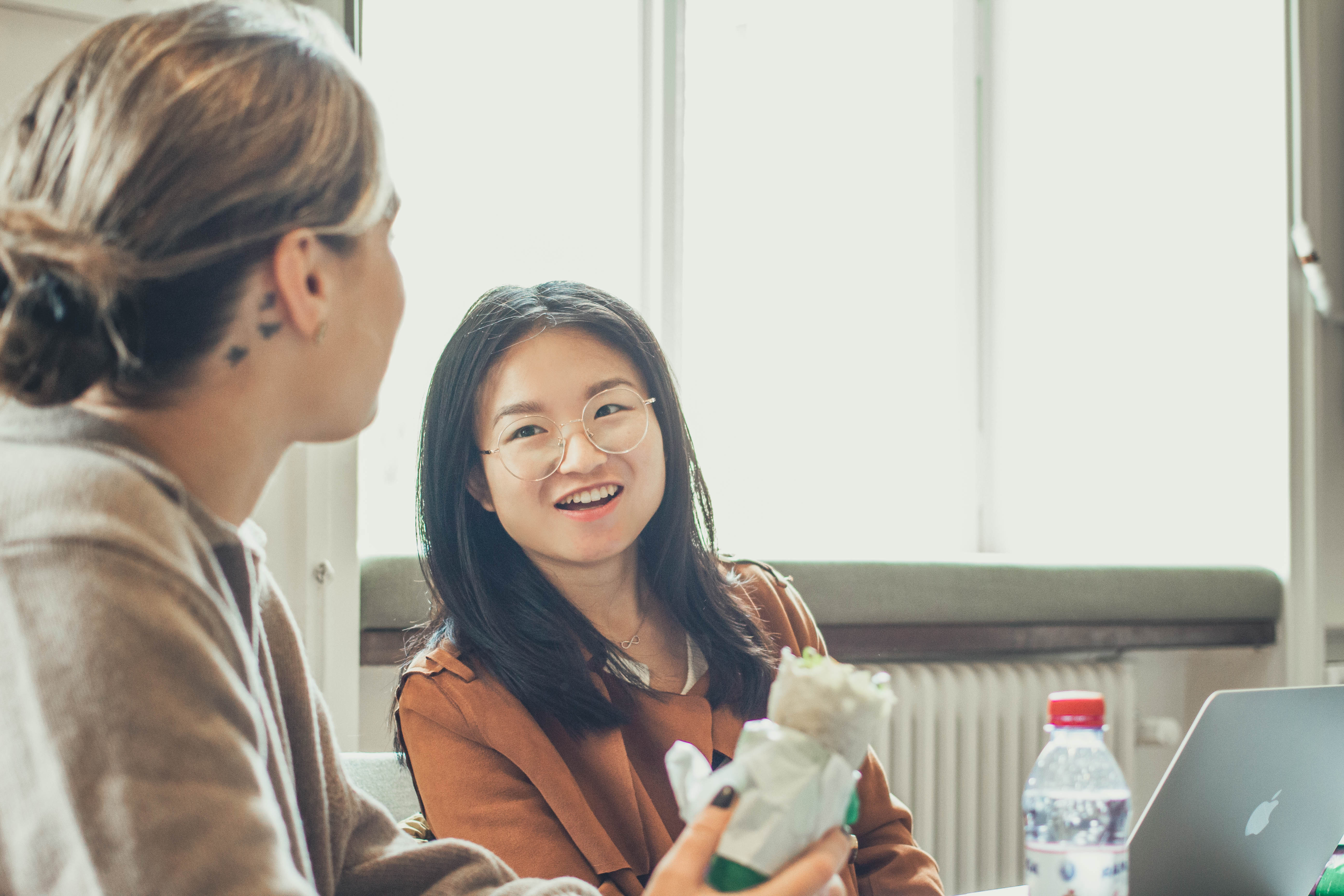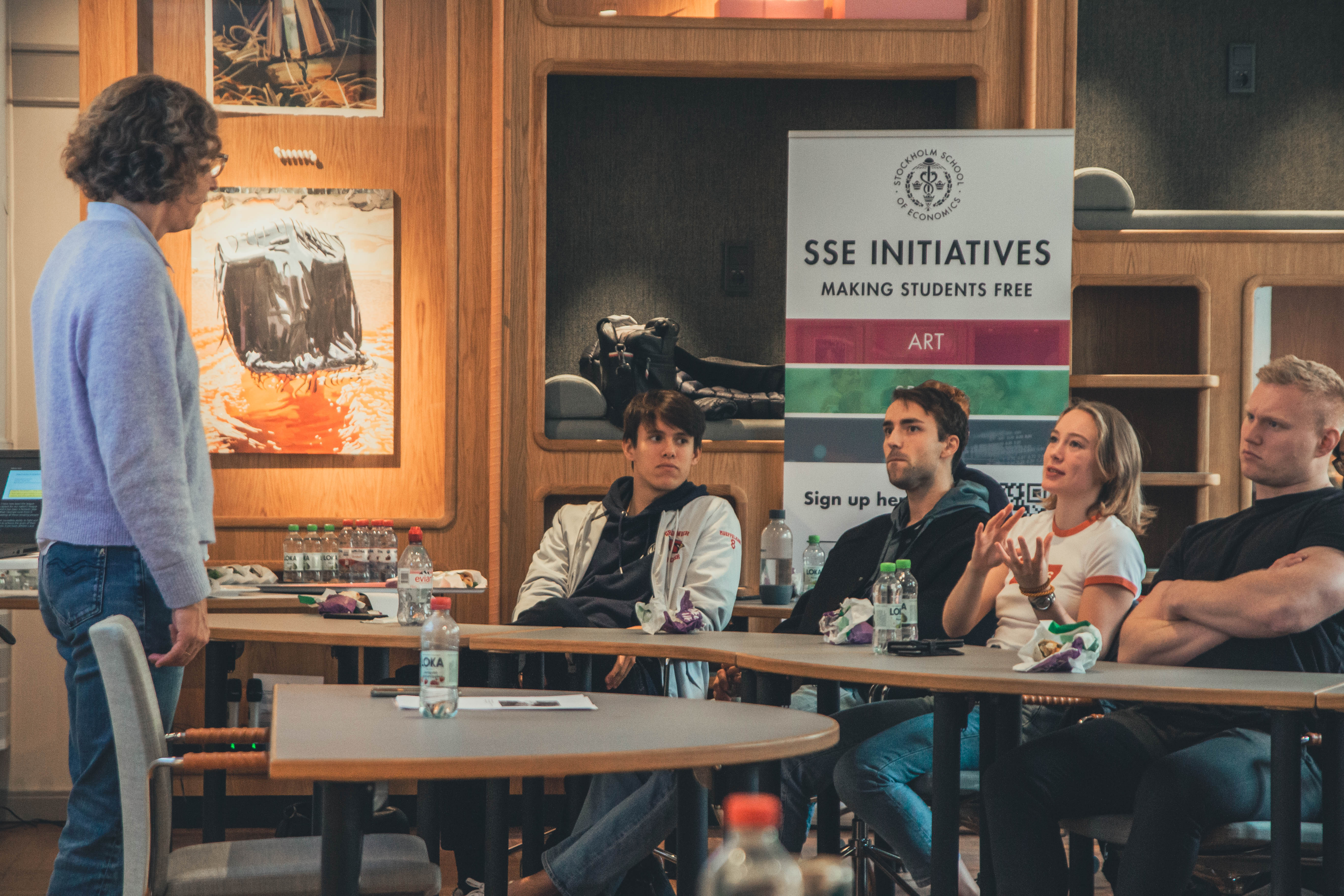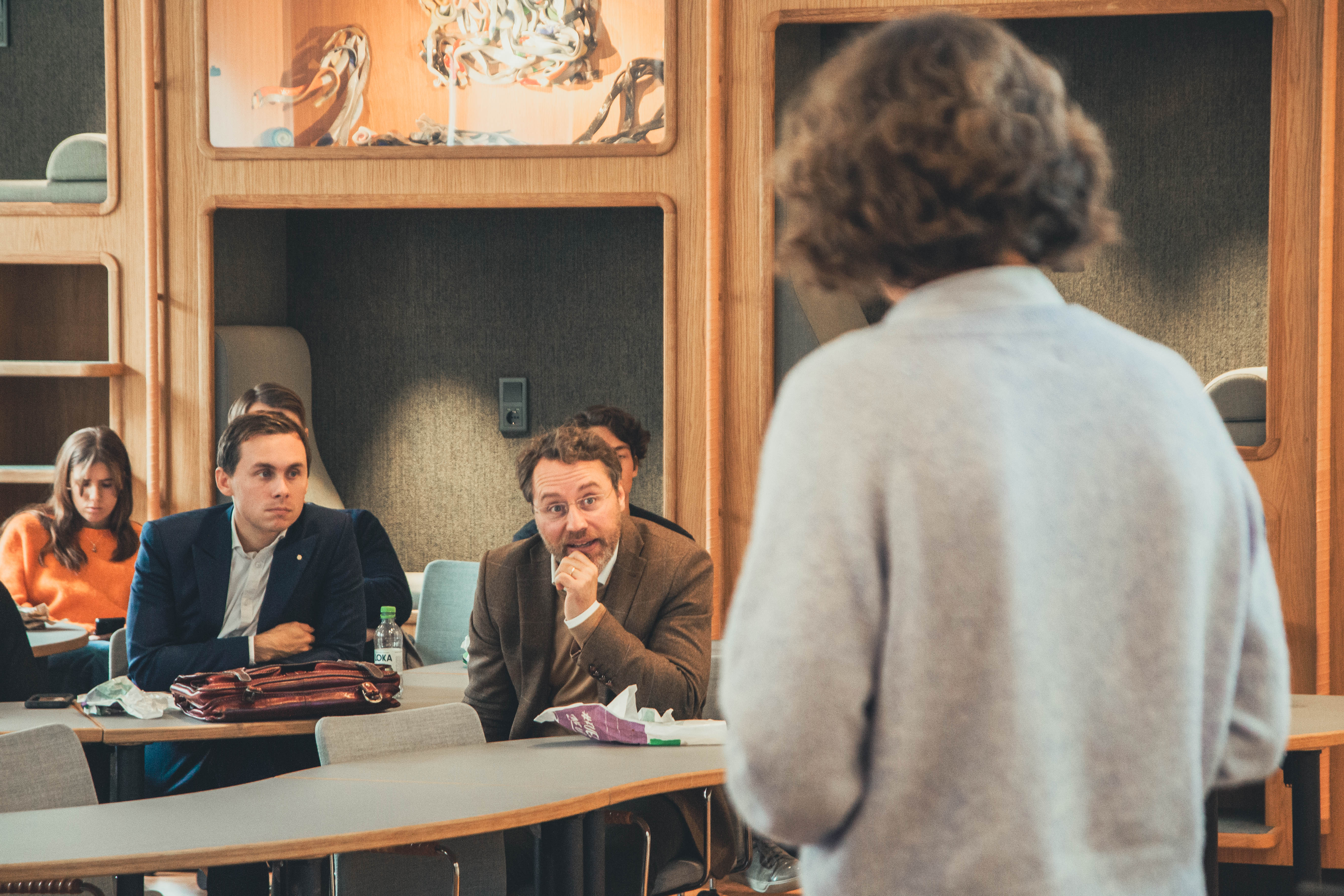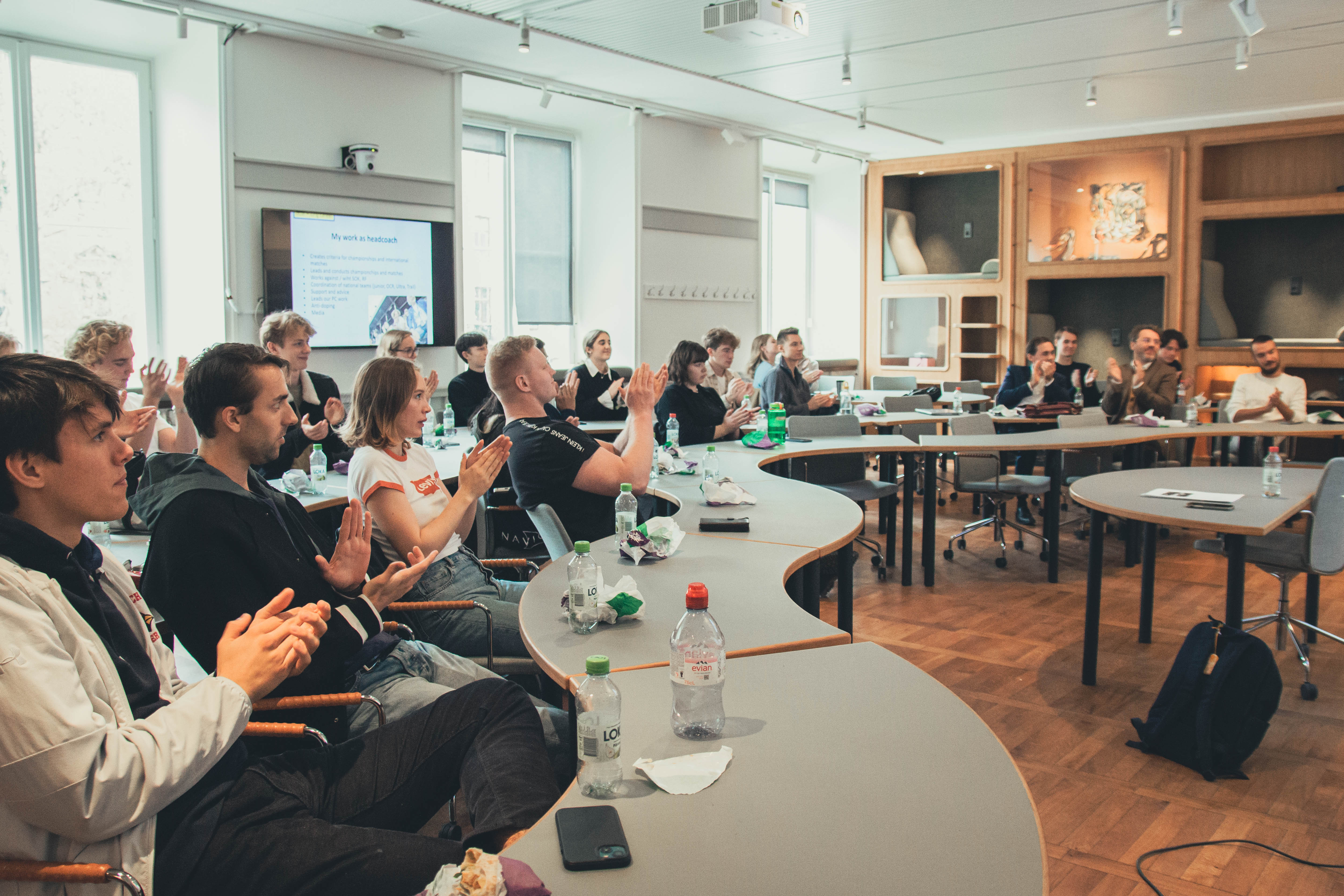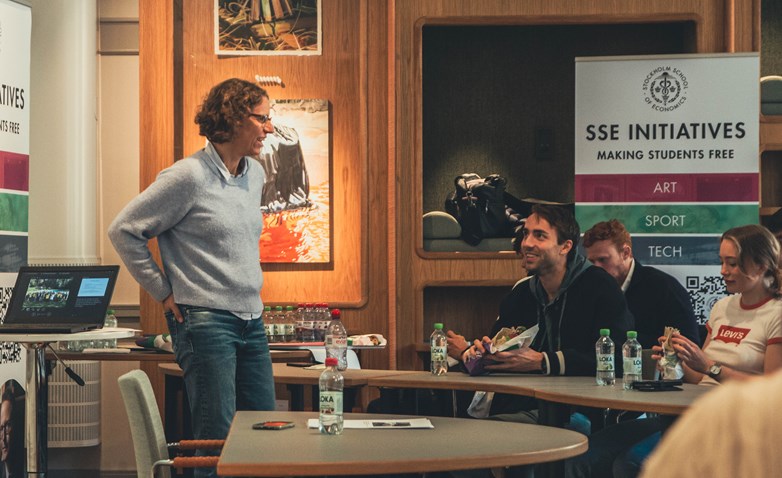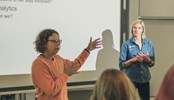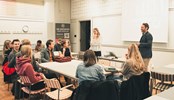Karin Torneklint - Insights from a Career in Sports Federations
Karin Torneklint
Karin Torneklint, Chief of Sports at the Swedish Bandy Association, former Head Coach of the Swedish Athletics Federation and EPOS representative shared her insights from a long career within the sports world with SSE students during a lunch lecture in the Cabinet Room.
Many Actors Involved in an Elite's Career
Torneklint highlighted the role of many different actors for the development and career of athletes, not only the athletes themselves, but also their coaches, clubs, sponsors, managers, fysios, as well as the Swedish Athletics Federation and SOK (Swedish Olympic Committee), RF (Swedish Sports Confederation), RIG (Riksidrottsgymnasium) and NIU (Nationell Idrottsutbildning).
Organization and Goals
Torneklint also described the organization and ways of working at the Swedish Athletics Federation, with over 900 clubs, 25 of them being elite clubs, as well as few professional coaches, and the majority doing it on a voluntary basis. The overarching goal is that athletes have a long career, according to Torneklint. She also detailed their elite structure with teams, PC (Prestationscentrum), schools (Riksdrottsgymnasium and Nationell Idrottsutbildning) and clubs, with the goal of creating a good environment for the athletes.
Responsibilities as Head Coach
In her former role as Head Coach at the Swedish Athletics Federation, Torneklint was responsible for creating criteria for championships and international matches, leading and conducting championships and matches, working against and with SOK and RF, coordination of national teams, supporting and advising, leading the PC (Prestationscentrum) work, media and, according to Torneklint the most pressing work area of anti doping.
The lunch lecture also became very interactive once Torneklint finished off her presentation, with students discussing Torneklint's experiences as a female, the role of female athletics in the sport as well as other equality matters.
